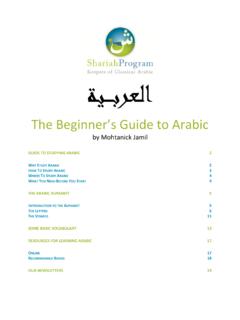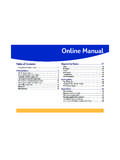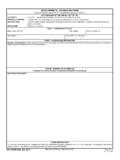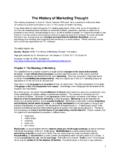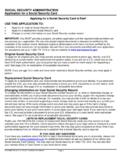Transcription of Beginners Guide To Arabic - learnarabiconline.com
1 The Beginner s Guide to Arabic Guide TO STUDYING Arabic 2 WHY STUDY Arabic 2 HOW TO STUDY Arabic 3 WHERE TO STUDY Arabic 4 WHAT YOU NEED BEFORE YOU START 4 THE Arabic ALPHABET 5 INTRODUCTION TO THE ALPHABET 5 THE LETTERS 6 THE VOWELS 11 SOME BASIC VOCABULARY 13 RESOURCES FOR LEARNING Arabic 17 ONLINE 17 RECOMMENDED BOOKS 18 OUR NEWSLETTERS 19 by Mohtanick Jamil Guide to Studying Arabic Why Study Arabic Arabic is spoken as a mother tongue by between 250 and 400 million people across 25 countries. Over a billion people can read the script even if they can t understand the language.
2 And Arabic happens to be one of the official languages of the United Nations. Therefore, many people learn the language for formal reasons. At about 1,500 years old, Arabic also happens to be a very old language. It was the language of scholarship throughout the rule of the Islamic empires a period of well over 1,000 years from the 7th century right down to the 19th and even 20th. The greatest books of medicine, geology, law, philosophy, and basically any subject you can imagine were all written in the finest Arabic . Therefore, many of the most advanced people in their fields of study learn Arabic for scientific and anthropological reasons.
3 Arabic is also the language of the Qur an (the Islamic holy book). It doesn t matter what your beliefs are, the Qur an is unequivocally, undeniably and undoubtedly the greatest form of Arabic literature, and indeed the greatest form of literature, period. The beauty of this piece of literature is, in fact, quite literally, miraculous. Therefore, tens of millions of people learn this language to witness firsthand the beauty and miracle that is The Qur religious reasons. In fact, emphasis has been placed on studying the Arabic language by the Prophet (PBUH) himself when he said to the effect: learn the Arabic language as you learn the Islamic obligations and practices.
4 His companions, who, remember, were Arabs, used to learn Arabic despite the fact that it was their mother tongue. They used to say: teach your children Arabic . They used to correct each other s grammar. They would consider it unacceptable to make a grammatical mistake. And the scholars that followed them in later centuries all emphasized learning Arabic . Imam Abu Hanifa said to the effect: I would ve made learning this language compulsory had I not deemed it difficult on the people. That is because 1. in order to truly understand the message of God as it was revealed, one must understand it in the very language it was revealed, and 2.
5 The Qur an is a literary miracle really, a full blown miracle and in order to witness it, you need to simply learn the language and you will witness a miracle with your very own eyes When the tribe of Qureish in ancient Arabia sent their most infamous debater to the Prophet (PBUH), the debater barked and barked and barked. He was enthusiastic and completely vicious. His mission was to completely overtake the Prophet (PBUH) and he was relentless. But when he finished, the Prophet (PBUH) recited a few verses of the Qur an, upon which tears started to flow from the debater s eyes and he had to cover the Prophet s (PBUH) mouth because he couldn t take any more.
6 Would you like to taste the same beauty that made that debater cry? How To Study Arabic How you study the language depends largely on why you re studying it. If you re studying the language to be able to communicate informally with friends, for example, then the best place to start for this purpose is to enrol in a short term class (about 6 months to 1 year) where you will be taught a colloquial dialect of Arabic . There are many dialects, but the Egyptian is most popular and most widely recognized. Whether the course is in person or online doesn t make a difference in our opinion. But the course must have a live teacher of native Arabic descent, offer plenty of conversational practice and place high emphasis on out-of-class work.
7 These are courses that get their students to watch subtitled movies, pair them with native speakers for practice and even offer exchange and immersion programs. If you are studying the language for formal purposes, on the other hand, you will need a more formal regiment. You will be relying more on books and placing more attention on grammar rather than your ability to speak fluently. The ability to speak casually and fluently will come later. And the studies will last longer than a year or two; perhaps as much as 4 years. Most universities and colleges offer Arabic language courses. Some even span 3 or 4 years.
8 Most of these are quite good and will give you a firm grounding in Modern Standard Arabic to the point where you can eventually acquire a formal position such as translator, etc. But remember, just because there is more emphasis on grammar, doesn t mean you don t have to practice. You will need to set aside several hours for practice and eventually work on your ability to converse in Arabic . A note of caution: The wrong thing to do when studying Arabic formally is to purchase a few books and start learning on your own. Many books claim that you can use them for self-learning, but let s get real. What you need is a medium or long term course with plenty of hours of instruction and lots of practice on your own time.
9 Pick the course and/or book that s most convenient for you, but don t try to do it all on your own. Finally, if you are studying Arabic in order to understand the Qur an or works of classical scholarship, you will need to master Classical Arabic . There are several courses around the world that offer mastery in Classical Arabic , but it is not worth quitting your job and joining these schools full time. What is best is a medium or long term online course with teacher interaction. You will be relying heavily on books and will need to prepare for each lesson by reading ahead before classes. You will cover at least 5 different subjects just on the Classical Arabic language: 1.
10 Grammar phrases and sentences 2. Morphology and Etymology verbs and conjugation 3. Cantillation pronunciation 4. Literature practice, exposure to different styles of writing, idioms 5. Logic a prerequisite for further studies 6. Rhetoric literary devices and beautifying speech 7. Poetry an understanding of Arabic poetry and culture Where To Study Arabic As mentioned, the wrong thing to do is to try and study on your own. You need to join a class. If you study informal or formal Arabic , a university or college course is usually the safest bet. Find a college near you and read up on their Arabic programs.
